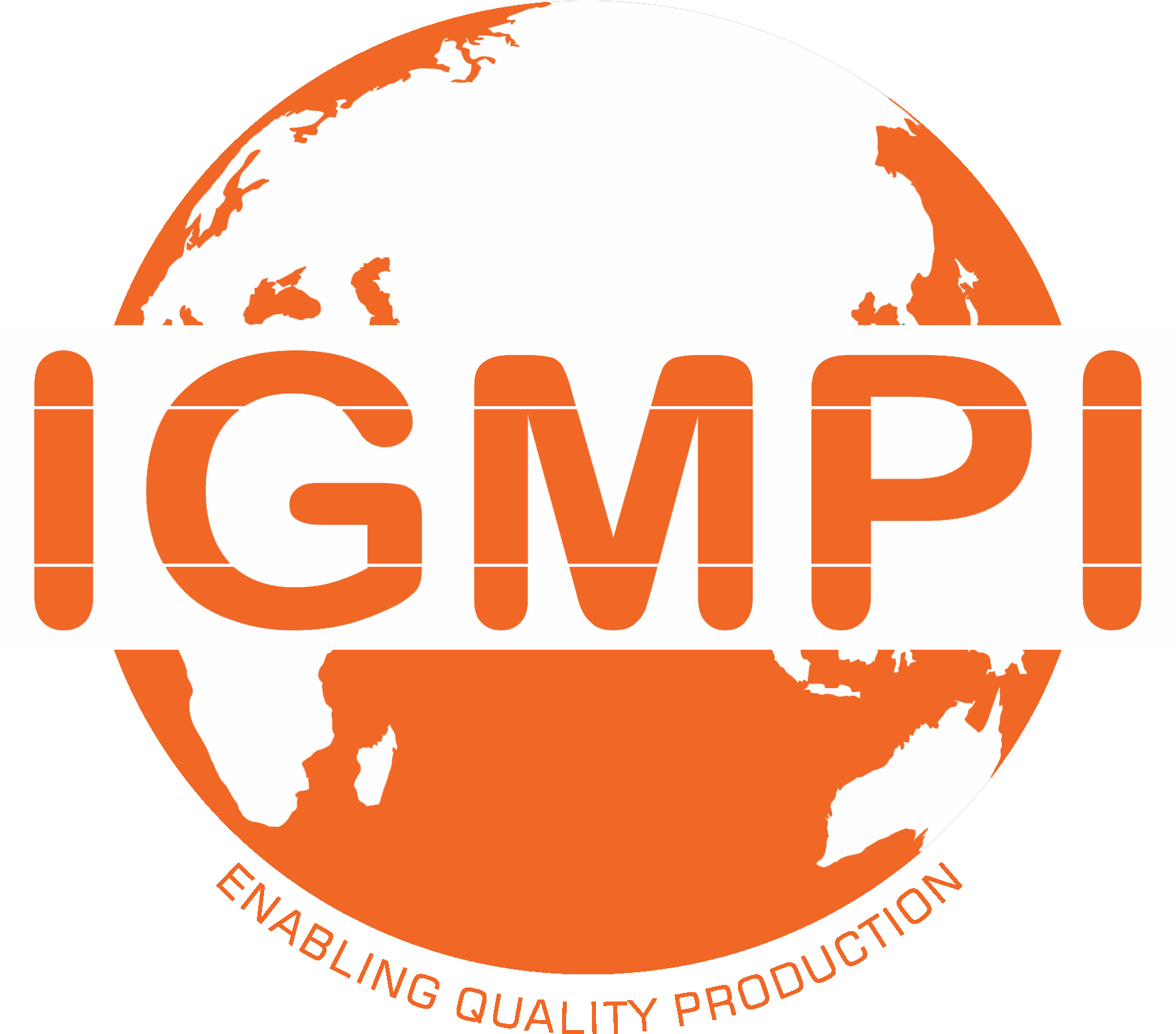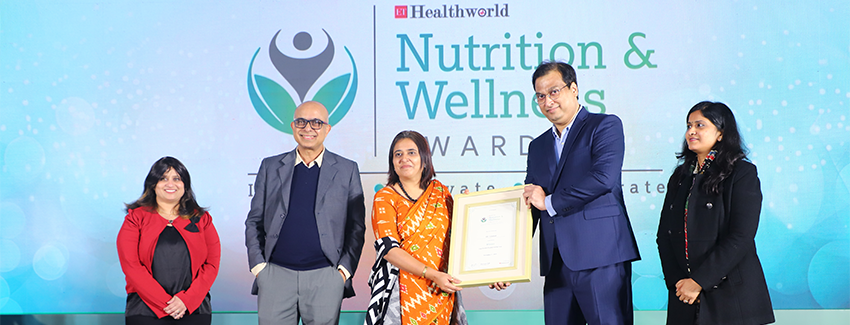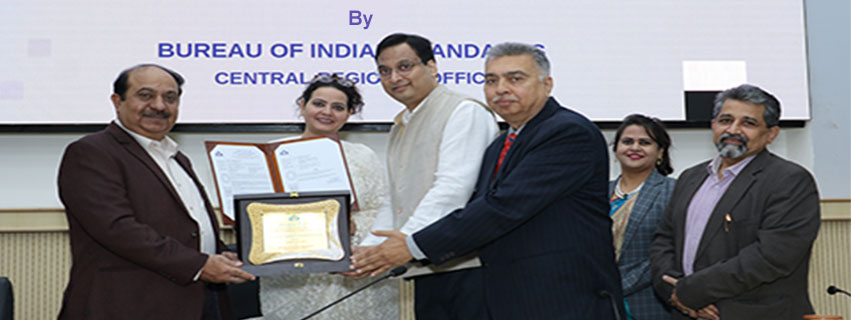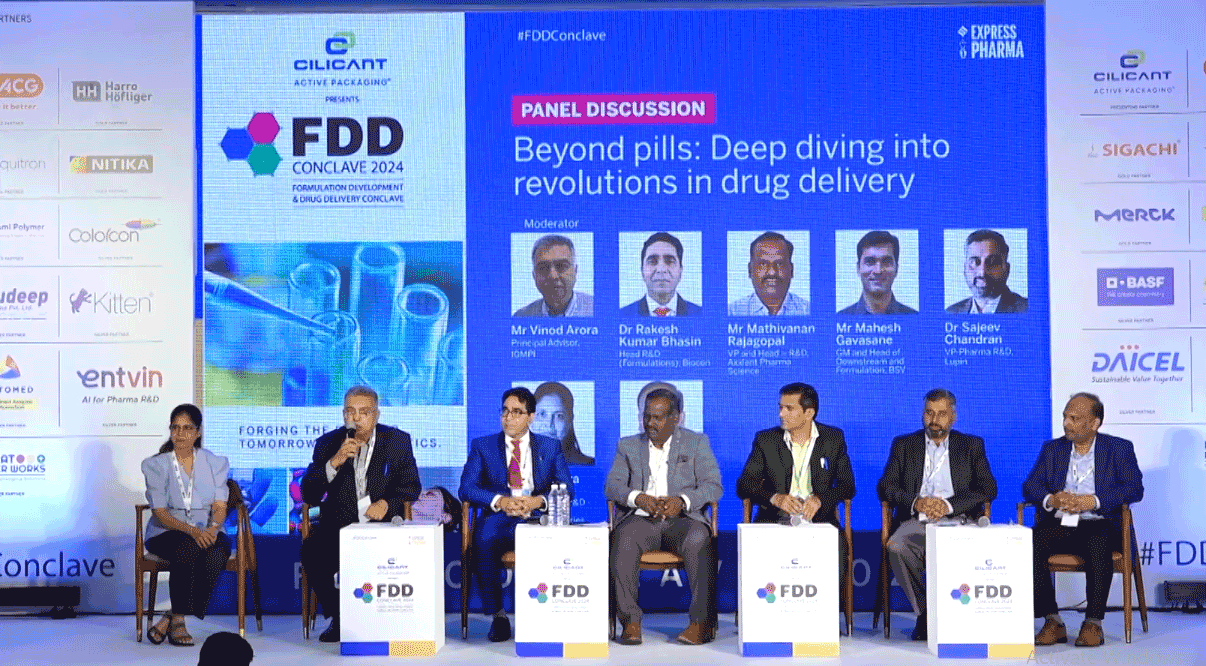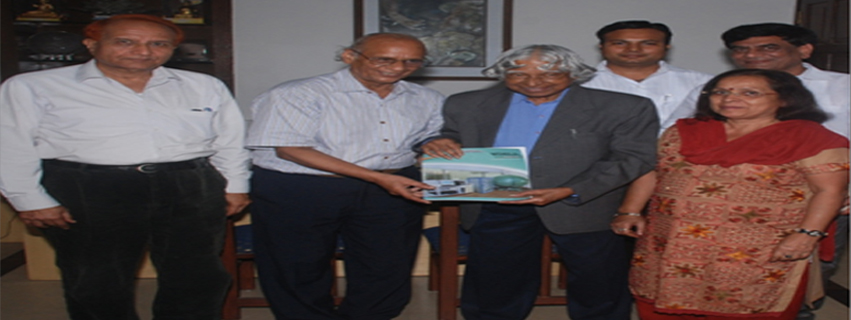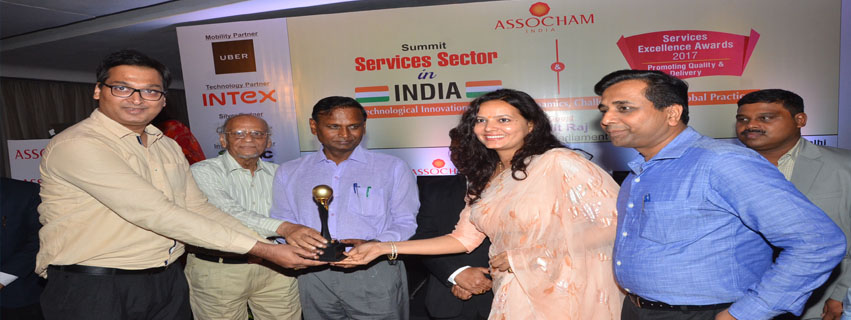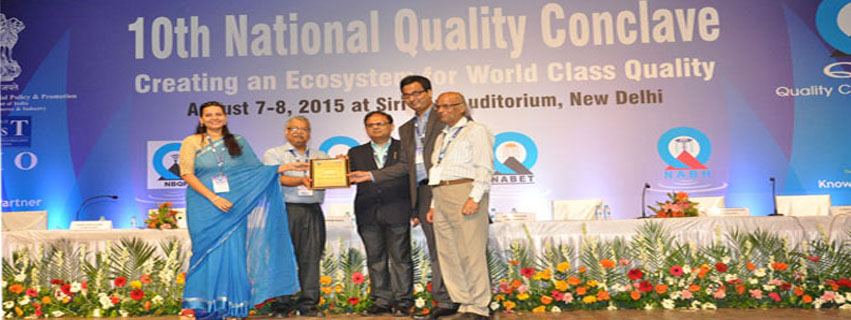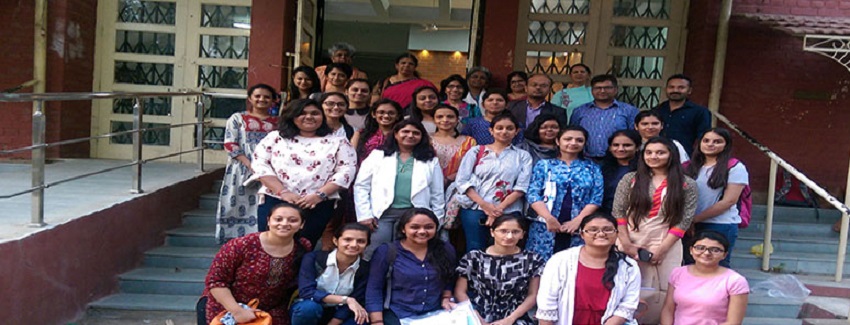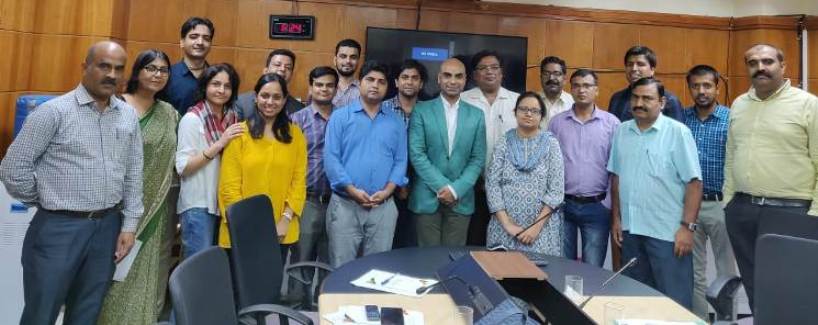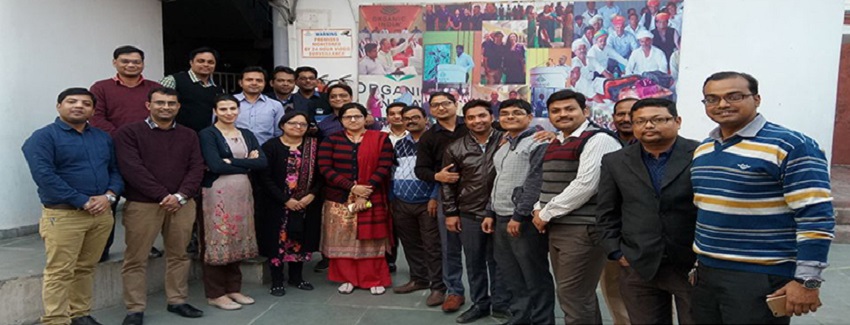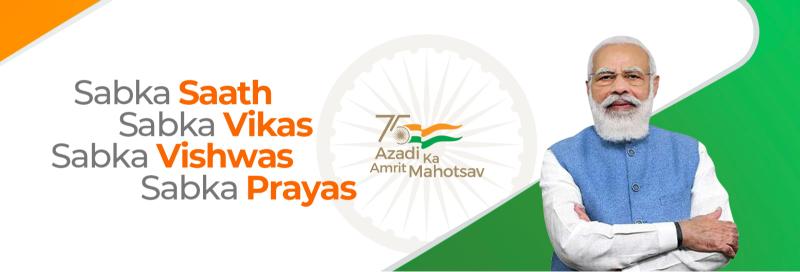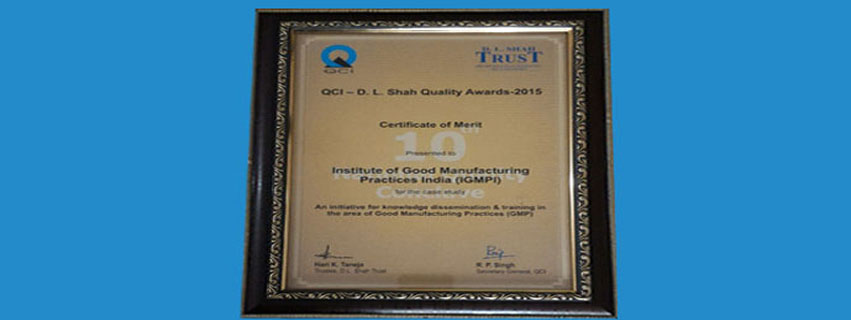(An Autonomous Body Recognized by Ministry of Commerce & Industry, Government of India)
Competency based placement focussed Education | Training | Research | Consultancy
Post Graduate Diploma/ Executive Diploma in Cognitive Behavioural Therapy (PGDCBT/EDCBT)
The Post Graduate Diploma/Executive Diploma in Cognitive Behavioural Therapy (CBT) provides in-depth knowledge of CBT principles, techniques, and applications. It covers cognitive distortions, thought restructuring, Behavioral interventions, and specialized areas like anxiety, depression and PTSD. The program includes practical training through case studies, role-playing, and supervised practice while also exploring integrations with therapies like DBT, ACT, and MBCT. Designed for mental health professionals, counsellors, and psychologists, this diploma enhances therapeutic skills using evidence-based CBT techniques.
Programme Overview:
The PG Diploma/Executive Diploma in Cognitive Behavioural Therapy (CBT) is a comprehensive training program designed to equip participants with the knowledge, skills, and practical experience necessary to effectively apply CBT principles in clinical practice. This course provides a deep dive into the theoretical foundations of CBT, exploring the cognitive and behavioural models that underpin its therapeutic approach. Participants will gain a thorough understanding of evidence-based practices in CBT, learning how to assess, formulate, and implement tailored treatment plans for individuals experiencing a wide range of psychological challenges. Through a combination of interactive lectures, case studies, role-playing exercises. Emphasis will also be placed on ethical considerations and cultural competence in CBT practice, ensuring that participants are equipped to provide ethical, sensitive, and culturally responsive care to diverse client populations. Throughout the course, participants will have the opportunity to enhance their self-awareness and fostering personal growth and professional development in the field of mental health counselling. Upon successful completion of the program, participants will receive an in-PG Diploma/Executive Diploma in Cognitive Behavioral Therapy, validating their expertise and readiness to apply CBT principles in with confidence and competence.
Programme Structure
International Affiliation with
Programme Structure
International Affiliation with
Module 1: Introduction to Human Psychology
-
Definition and importance of psychology
-
Branches and scope of psychology
-
Early Philosophical Influences on Psychology
-
Schools of Psychology
Module 2: Understanding the nature, scope & areas of counselling
-
Definition, Nature, Objective and Scope of counselling.
-
Counselling Skills
-
Process of Counselling
-
Types of Counselling
Module: 3 Cognitive and Behavioural Approach
-
Cognitive and Behavioural School of Psychology
-
Historical Emergence of CBT
-
Theoretical Perspective
Module 4: Introduction to CBT
-
Overview of CBT principles
-
Cognitive and Behavioral models in CBT
-
Evidence-based practice in CBT
Module 5: CBT Assessment and Formulation
-
Assessment tools and techniques in CBT
-
Case conceptualization and formulation
-
Setting treatment goals and planning interventions
Module 6: Cognitive Restructuring Techniques
-
Identifying and challenging cognitive distortions
-
Cognitive restructuring exercises and thought records
-
Mindfulness-based CBT techniques
Module 7: Behavioral Activation and Exposure Therapy
-
Behavioral activation strategies for depression
-
Systematic desensitization and exposure techniques for anxiety disorders
-
Graded exposure for phobias and PTSD
Module 8: Problem-Solving and Coping Skills Training
-
Teaching problem-solving skills to address life stressors
-
Coping skills training for managing emotions and cravings
-
Role-playing and Behavioral rehearsals
Module 9: CBT for Specific Disorders
-
CBT for Depression & Anxiety disorders
-
CBT for Phobia & PTSD
-
CBT for Substance use disorder
Module 10: Ethics and Cultural Competence in CBT Practice
-
Ethical guidelines and professional standards in CBT
-
Cultural considerations in CBT assessment and treatment
-
Addressing diversity and social justice issues in CBT practice
Module 11: Integrative Approaches in CBT
-
Dialectical Behaviour Therapy (DBT)
-
Acceptance and Commitment Therapy (ACT)
-
Mindfulness-Based Cognitive Therapy (MBCT)
-
Rational Emotive behaviour Therapy (REBT)
Module 12: Case study
Module 13: Capstone Project
Eligibility
Graduates in any discipline are eligible for our Post Graduate Diploma, Executive Diploma and Professional Certification Programmes.
Programme Duration
The minimum duration to complete the PG diploma programme is 12 months and maximum is 24 months. The minimum duration to complete the executive diploma programme is 6 months and maximum is 12 months.
Programme Mode
Registrations are currently open for regular and Part-time (Online Live Classes) both modes.
Programme Deliverables
A comprehensive study material for all the modules in hard copies ensuring the needs of the audience. The accompanying training material is appropriately aligned with the current Industry’s expectations.
-
Assignments for all the programme modules for continuous evaluation and guidance.
-
Interactive or online live sessions on all key areas of the programme giving all flexibility to the participants.
-
Online Live Classes/Part-time for all the modules will be conducted on the weekends. Moreover, a doubt clearing session will also be scheduled before the examination
-
All the efforts are made by IGMPI faculty members to make the entire programme modules easily understandable.
-
Assessment and evaluation for all the programme modules in order to enhance the levels of competencies and skills of the participants leading towards the objective of application in the job.
-
At the end of each programme modules, the trainers shall obtain feedback from the participants using specially designed questionnaires.
-
All learning and training delivery initiatives shall be conducted in English.
Examination and Certification
All the participants are expected to appear for an online exam and are also obliged to submit assignments after each module. After successful completion, the participants will be awarded. The PG Diploma/Executive Diploma in Cognitive Behavioural Therapy (CBT) by Centre for Health Management and Research, IGMPI. For all the above-mentioned modules, Online Live Classes/Part-time or face-to-face classes (Regular mode), elaborate programme material, self-assessment assignments would be provided by the Institute. Details get updated on the webpage as well.
Discipline in Classes and Examination
Every student is required to observe a disciplined behaviour during her/his classes, assessments & examinations and to follow instructions from the Professors. Any act of indiscipline may result into discredit & it will be mentioned in her/his academic report.
Placement Assistance & Corporate Relations
The Institute has partnered with many organizations for providing with placement assistance to its participants. Besides, it has a robust placement cell comprised of senior level Human Resources professionals and Talent Acquisition experts which maintains close links with business and industry. This cell is continuously engaged in promoting the employability of our participants and encouraging the concerned Human Resources department and Hiring Managers to recruit/hire our participants for their vacant positions. The efforts of our placement cell also include helping with professional resume writing & interview skills.
In recent months the Institute has witnessed more and more participation from professionals working with global healthcare giants like Healthcare Settings (Apollo, Max Healthcare, Fortis etc.), Corporate Wellness Centres (Amaha, Mantra Care, Nirawellness etc.), Health Coaching and Consultancy (The Health Science Academy, Aanya Wellness, Shreehi Consulting Services LLP etc.), Education and Training, NGO’s (Mindroot Foundation, The MIND foundation etc.), and Private Practices etc.
Future career prospects
This PG Diploma/Executive Diploma in Cognitive Behavioural Therapy (CBT) Psychology have a wide range of career opportunities in the mental health and wellness sector. They can work as CBT therapists, clinical psychologists, mental health counsellors, psychotherapists, and Behavioral health specialists in hospitals, mental health clinics, rehabilitation centers, and private practice. There are also opportunities in corporate wellness programs, employee assistance programs (EAPs), schools, universities, and NGOs focusing on mental health and psychological well-being. Additionally, graduates can work in research, training, and academia, contributing to the development of CBT-based interventions and educational programs. They may also choose to specialize further in areas such as trauma-focused CBT, mindfulness-based therapies, neuropsychology, addiction counseling, and child and adolescent mental health. With the growing awareness of mental health, there is also scope for roles in digital mental health platforms, online therapy services, and behavioral coaching. For those interested in entrepreneurship, setting up a private therapy practice, coaching business, or online mental health consultancy is a viable path.
Programme Fee Details
Programme fee details will appear here.
Last date for submitting completed Application Form: 2nd Mar 2026.
For further enquiries, call or write to us on:
18001031071
(Toll Free -9:00 am to 5:30 pm IST-except on Central Government holidays)/
info@igmpi.ac.in
NEWSLETTER
- Shared Genetics Explain Why Mental Health Disorders Often Overlap
- Technology Integration Transforms Medical Transportation for Chronic Care in India
- Xortx Underscores Genetic Evidence for Xanthine Oxidase Targeting and Announces Board Update
- Technology-Driven Innovations Reshape India’s Eye Care Ecosystem
Other Programmes
- Addiction Psychology (PGDAP/EDAP)
- Adolescent Health and Counselling (PGDAHC/EDAHC)
- Ayurveda Practices (PGDAP/EDAP/DAP)
- Ayurvedic Cosmetology (PGDAC/EDAC)
- Ayurvedic Gastroenterology (PGDAG)
- Child Psychology (PGDCP/EDCP)
- Clinical Cosmetology (PGDCC/EDCC)
- Clinical Epidemiology (PGDCE/EDCE)
- Clinical Psychology (PGCP/EDCP)
- Counselling & Family Therapy (PGDCFT/EDCFT)
- Counselling Psychology (PCP/ECP)
- Cultural Psychology & Psychiatry (PGDCPP/EDCPP)
- Digital Health (PGDDH/EDDH)
- Educational Psychology (PGDEP/EDEP)
- Epidemiology and Biostatistics (PGDEB/EDEB)
- Facial Aesthetics (PGDFA/EDFA)
- Forensic Psychology (PGDFP/EDFP)
- Health and Sanitation (PGDHSI/DHSI)
- Health and Wellness Psychology (PGDHWP/EDHWP)
- Health Economics (PGDHE/EDHE)
- Health Informatics (PGDHI/EDHI)
- Health Information Management (PGDHIM/EDHIM)
- Health Inspector (DHI)
- Health Insurance Management (PGDHIM/EDHIM)
- Healthcare Analytics (PGDHA/EDHA)
- Healthcare Marketing (PGDHM/EDHM)
- Healthcare Quality Management (PGDHQM/EDHQM)
- Herbal Medicine (PGDHM/EDHM)
- Hospital and Healthcare Management (PGDHHM/EDHHM)
- Industrial/Organisational Psychology (PGDIOP/EDIOP)
- Integrative Medicine (PGDIM)
- Kaya Chikitsa (PGDKC/EDKC)
- Marriage and Family Education (PGDMFE/EDMFE)
- Maternal and Child Health (PGDMHC/EDMHC)
- Medical Coding (PGDMC/EDMC)
- Medical Records Technology (PGMRT/EDMRT)
- Mental Health and Psychotherapy (PGDMHP/EDMHP)
- Mind-Body and Lifestyle Sciences (PGDMBLS/EDMBLS)
- Naturopathy (PGDN)
- Naturopathy and Yogic Science (PGDNYS/EDNYS/DNYS)
- Neuropsychology (PGDNP/EDNP)
- Nursing Administration (PGDNA/EDNA)
- Psychosocial Rehabilitation (PGDPR/EDPR)
- Public Health (Epidemiology as Major) (PGDPHE/EDPHE)
- Public Health and Hospital Management (PGDPHHM/EDPHHM)
- Sanitary Inspector (DSI)
- Telehealth (PGDTH/EDTH)
- Yoga Therapies (PGDYT/EDYT)
